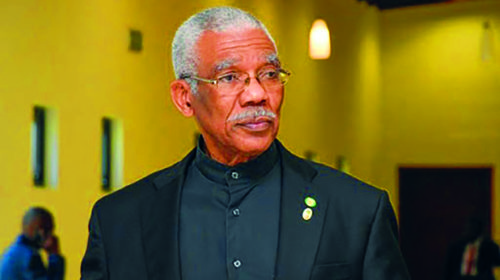
A Public Health Ordinance that has conferred Public Health Minister Volda Lawrence with new far-reaching ministerial powers in order to confront the coronavirus pandemic is being met with public consternation and many expressing concern – through social media and other platforms – calling the new measures “overkill”, “draconian” and with the potential to be abused to control the populace for reasons not related to the stated purposes.
The public firestorm led to Attorney General and Legal Affairs Minister Basil Williams having to defend the move by Government, even as he conceded that the new powers given to the minister would have been unconstitutional without the blessings of the President.
According to Williams, the “very wide powers” that have been given to the Public Health Minister under the Public Health Ordinance is “in the interest of protecting the nation as a whole”.
Williams offered the rationalisation on Wednesday during an interview with the State media and noted that the powers now conferred to the Minister would have been “un-constitutional” otherwise.
The directive authorises the Public Health Minister and other Government functionaries to commit certain acts, which if there was no exception, would have been breach of citizens’ constitutional rights and freedoms, according to the Attorney General.
According to Williams, while many of the powers and measures now in place are already reposed in the Central Board of Health, there can be situations where there is need for immediate recourse.
Such situations, he posits, allow for the Ordinance to have the President assume all of the powers and delegate them to the Minister within the legal framework.
The Attorney General, in responding to the widespread concerns over the draconian nature of the proposals, has since contended the provisions “will not be utilised whimsically or capriciously.” In view of other abuse of powers by the Administration over the last five years, the assurance was viewed with scepticism by most analysts.
According to the Official Gazette, under the order, the Public Health Ministry shall take measures to “restrain, segregate and isolate persons suffering from the disease, or who may be, likely from exposure to the infection, suffer from the disease”.
Additionally, the Public Health Ministry “shall speedily bury or cremate the corpse of persons that died as a result of the coronavirus in addition to providing curative care”.
More alarmingly, it directed that the Public Health Minister may “remove, disinfect, and destroy the personal effects, goods, buildings and any other article, material or thing exposed to infection from the disease”. In no other country was any such authority given since the virus only survives on surfaces for a limited time.
The Minister has also been empowered to prohibit or restrict the movement of persons within, to and from an infected area.
The Order also empowers the Minister to call on the Guyana Police Force to provide enforcement assistance, as it relates to its duties under the Order.
The Order has also called on the Ministries of Education and Health to take measures to control the spread of COVID-19 across educational institutions and with respect to immigration matters.
Defending the Executive Order, Williams cited hypothetical examples where a person could be infected but still allowed to mingle in the population while harbouring infected beddings and surroundings.
The Attorney General suggested that in the national interest, the new powers would allow for the lawful detention of such a person in a designated facility and the destruction of property.
He spoke too of infected persons refusing to be removed from their homes, as among the reasons for the ‘wide powers’.
Asked about the financial aspect of the Ordinance, Minister Williams said Governments could always expend funds from the coffers in the event of emergencies and natural disasters such as breaches to the seawall.
Qualifying his position further, the Attorney General noted that in each of the countries currently dealing with the coronavirus a priority in measures is gathering the funds to prevent and control the spread of the pandemic.
Guyana Times International on Wednesday reported that Head of State, David Granger has written a ‘blank cheque’ for the Health, Education and Citizenship Ministries in order to meet expenditure related to meeting the demands of COVID-19.
The move comes under an Executive Order issued by the President under the Public Health Ordinance and was signed by the President on Monday.
According to the order, the Finance Minister shall expend from the Consolidated Fund such sums of money as may be necessary for the effectual carrying out of identified measures to be undertaken by the various Ministries.
The Order, which has since been gazetted, states that the “President considers that immediate action is necessary to address COVID-19 and declares COVID-19 as an infectious disease” warranting the special orders.
The Executive Order is to remain in force until withdrawn by the president.



